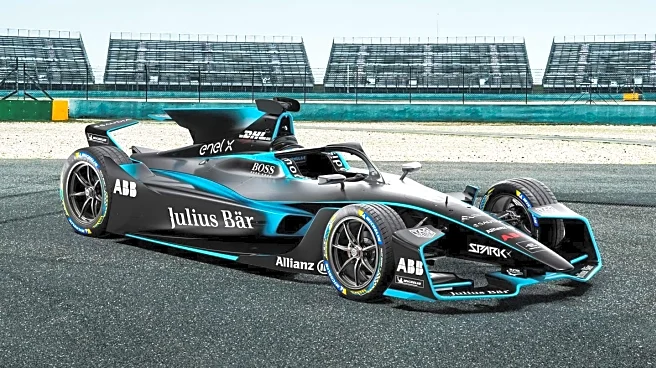What's Happening?
Gen Z individuals have expressed their frustrations with certain behaviors exhibited by millennials, highlighting generational differences in communication, work culture, and social media usage. According
to various Gen Zers, millennials tend to focus heavily on aesthetics, often prioritizing social media presence over real-life experiences. This generation is also noted for its passive-aggressive communication style, particularly in professional settings, which Gen Z finds stressful. Additionally, millennials are perceived to lack boundaries at work, often oversharing personal information and expecting constant availability. The hustle culture prevalent among millennials is seen as a survival mechanism, contrasting with Gen Z's more relaxed approach to challenges. These observations were shared by Gen Zers in a HuffPost article, reflecting the cultural and behavioral divides between the two generations.
Why It's Important?
Understanding the differences between Gen Z and millennials is crucial for fostering effective communication and collaboration in workplaces and social settings. As Gen Z enters the workforce, their expectations for recognition and transparency may challenge traditional millennial work practices. This generational shift could lead to changes in workplace dynamics, with potential impacts on productivity and employee satisfaction. Businesses and organizations may need to adapt their strategies to accommodate Gen Z's preferences for direct communication and a sense of purpose in their roles. Additionally, the critique of millennial behaviors by Gen Z highlights the evolving nature of social media and its influence on personal and professional interactions.
What's Next?
As Gen Z continues to grow in influence, both socially and economically, there may be increased pressure on millennials to adapt their behaviors to align with the preferences of the younger generation. Organizations might implement training programs to bridge communication gaps and enhance understanding between the generations. Furthermore, the emphasis on aesthetics and social media presence could lead to shifts in marketing strategies, targeting Gen Z's desire for authenticity and meaningful engagement. The ongoing dialogue between these generations may also prompt broader societal discussions on work-life balance and the role of technology in daily life.
Beyond the Headlines
The generational differences highlighted by Gen Z's critique of millennials may have deeper implications for cultural and ethical norms. As Gen Z challenges the status quo, there could be a reevaluation of values such as privacy, work ethics, and the impact of social media on mental health. This generational discourse may also influence policy decisions related to digital communication and workplace regulations, as society seeks to accommodate diverse perspectives and needs.









